Our young scientists will acquire life-long enquiry science skills, in order to explore and understand the world they live in, alongside the vast knowledge of the disciplines of biology, physics and chemistry. They will also develop an understanding of the vital role that major scientific ideas and scientists have played in society. In doing so, all our children, regardless of their starting points, will be fully prepared for their next stage of science education, and beyond.
How our science curriculum is constructed
Science at Beech Hill School is taught discretely, with a focus on substantive knowledge-rich content and the development of essential disciplinary knowledge. The National Curriculum programmes of study and Early Years Foundation Stage framework are fully adhered to and then supplemented with additional knowledge-rich content. This provides a coherent science curriculum that both prepares children extremely well for future learning and gives them the tools to independently investigate and explore the world further. We teach the specific units of study half termly. We discuss the vocabulary of whether a unit is Chemistry, Physics or Biology and what this area of science entails from year 1.

The science curriculum encourages children to be curious about natural phenomena and to be excited by the process of understanding the world around them. We want our children to remember the concepts they learn. Therefore, the curriculum focuses on the sequential development of essential substantive knowledge underpinning biology, chemistry and physics, as per the science progression map below. Over time, these building blocks of component learning are transformed into a deep understanding of the real world. Each year group deepens their understanding of key concepts, adding new substantive knowledge to existing schema. For example, the biology strand of ‘plants’ is revisited multiple times throughout the year groups, with the component learning of basic plant structure in year 1 transforming into the composite learning of water transportation within plants in year 3.
Procedures and concepts that underpin scientific methods are developed through the systematic focus on disciplinary knowledge. Every unit of work contains opportunities to develop the Working Scientifically skills of asking questions, planning enquiries, observing, measuring, recording, presenting and interpreting results, drawing conclusions, predicting and evaluating, according to the progression in these skills as per the science progression map. Thus, essential science concepts are developed whilst children investigate the world around them. Scientific investigations and enquires are embedded throughout units and year groups to allow children to discover more about the knowledge they have required and the potential to observe it first-hand. The different approaches to science enquiry, such as fair testing, research and classifying are also systematically developed in the disciplinary knowledge section of the progression map.
At Beech Hill we also place vocabulary at the forefront, ensuring that children are exposed to new relevant and specialist vocabulary in each unit of study. Where possible. We link the science unit being taught with the curriculum topic of the half term. For example, year 4 State of Matter is in the same half term as their topic of Antarctica; for year 5, their unit of Earth and Space is within the wider curriculum topic of Infinity and Beyond (Space). This allows for relevant and purposeful links to be made and a deeper understanding of the substantive knowledge. Please see our Long-Term Overview below.
Each year group focusses upon a famous scientist each half term depending on their unit of work. At Beech Hill, we have reading as a priority and each half term the children will research all about the scientist and complete a reading VIPER comprehension task to practise their reading skills across the curriculum. Please click the link below to see this.
Suggested reading list and famous scientists
Understanding different types of knowledge in Science
Substantive Knowledge
Substantive knowledge sets out the subject-specific content that is to be learned – i.e. the National Curriculum units that can be separated into the disciplines of biology, physics and chemistry. This is the knowledge of the products of science, such as concepts, laws, theories and models. The progression map below, separated into biology, chemistry and physics, sequences the substantive knowledge in the science curriculum at Beech Hill, from Nursery to Year 6, drawing directly from the EYFS framework and National Curriculum.
Disciplinary Knowledge
Considers how substantive knowledge originates, is debated and is revised – i.e. how we create, contest and evaluate substantive knowledge over time. Disciplinary knowledge tells us how we know what we know; it is through disciplinary knowledge that pupils learn the enquiry practices of science. It gives an insight into the ways that scientists think – how they ask questions, plan an enquiry, observe, measure, interpret, conclude, predict and evaluate. Disciplinary knowledge enables one to ‘think like a scientist’. Disciplinary knowledge in science includes the Working Scientifically strand of the National Curriculum, and the key features of scientific enquiry as detailed in the ‘aims’ of the National Curriculum. Essentially, Working Scientifically skills and knowledge of approaches to science enquiry are distinct yet connected, and a particular lesson or sequence of learning is likely to incorporate elements of both. Please see our Subject progression below.
In early years, science is taught under the area of Understanding the World.
‘Science’ opportunities within the EYFS curriculum have been considered and identified. An example of this document is:
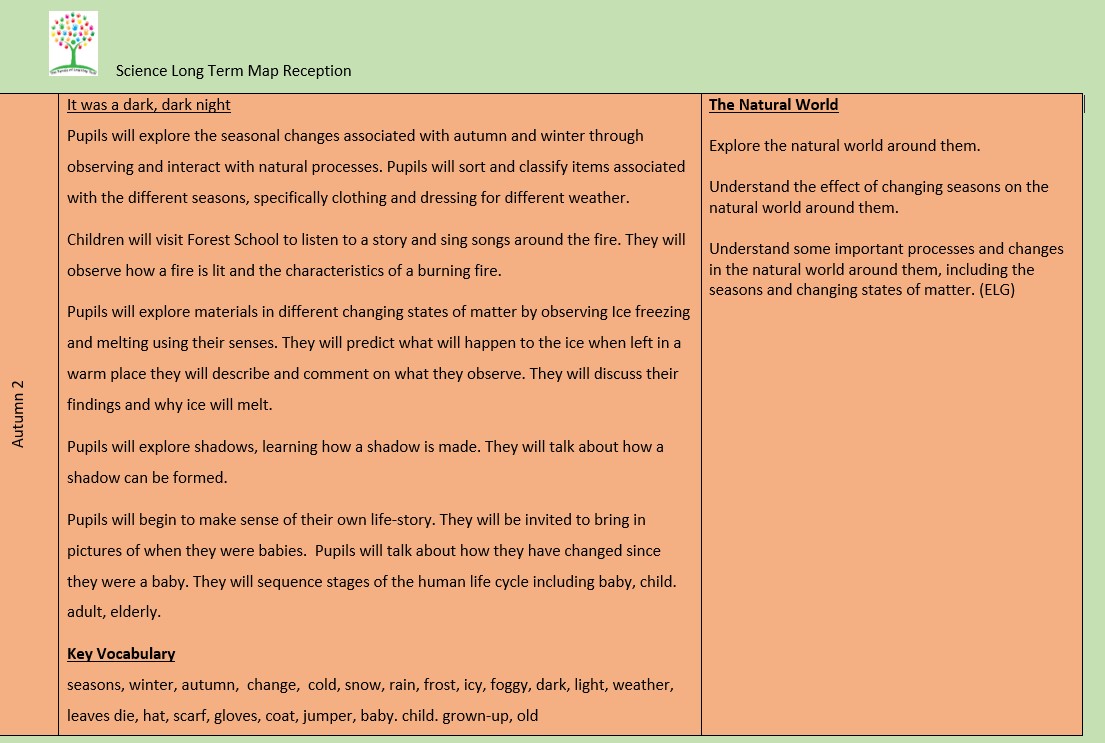
The Working Scientifically strand of the National Curriculum includes:
- Asking Questions that are the starting points for different types of science enquiry.
- Planning Enquiries that systematically require more independent decision making.
III. Observing Closely and communicating these observations via increasingly more elaborate diagrams.
- Taking Measurements according to relevant age-related strands of the mathematics National Curriculum.
- Recording Results appropriately, using a variety of tables, tally charts and pictures.
- Presenting Results in a range of ways, including age-appropriate charts and graphs.
VII. Interpreting Results by spotting patterns and describing relationships.
VIII. Drawing Conclusions and presenting them orally and in writing.
- Making Predictions about further results or investigations, by drawing on what has been learnt.
- Evaluating Enquiries by suggesting improvements and discussing the degree of trust in secondary sources and their results.
As well as the Working Scientifically skills as detailed in (I) to (X) above, disciplinary knowledge in science also consists of the different approaches that scientists employ in scientific enquiry, in order to answer relevant scientific questions. These are noted in the ‘aims’ of the National Curriculum, and include:
- Observing over time, over a range of different spans of time – in the moment and over a longer period of days, weeks or months.
- Pattern seeking, including the use of scatter graphs in UKS2.
III. Identifying, classifying and grouping, by working with Venn diagrams, Carrol diagrams and branching databases.
- Comparative and fair testing (controlled investigations), by controlling variables, presenting data in graphs and describing causal relationships.
- Researching using secondary sources, presenting what is found and using it to answer enquiry questions.
Acquiring disciplinary knowledge is an important curriculum goal and occurs alongside substantive knowledge development. The science enquiries in our curriculum integrate both forms of knowledge. Disciplinary knowledge is introduced, developed and mastered alongside the substantive content of biology, physics and chemistry. Please see our Working Scientifically progression document below.
Progression of vocabulary
Progression of substantive and disciplinary knowledge
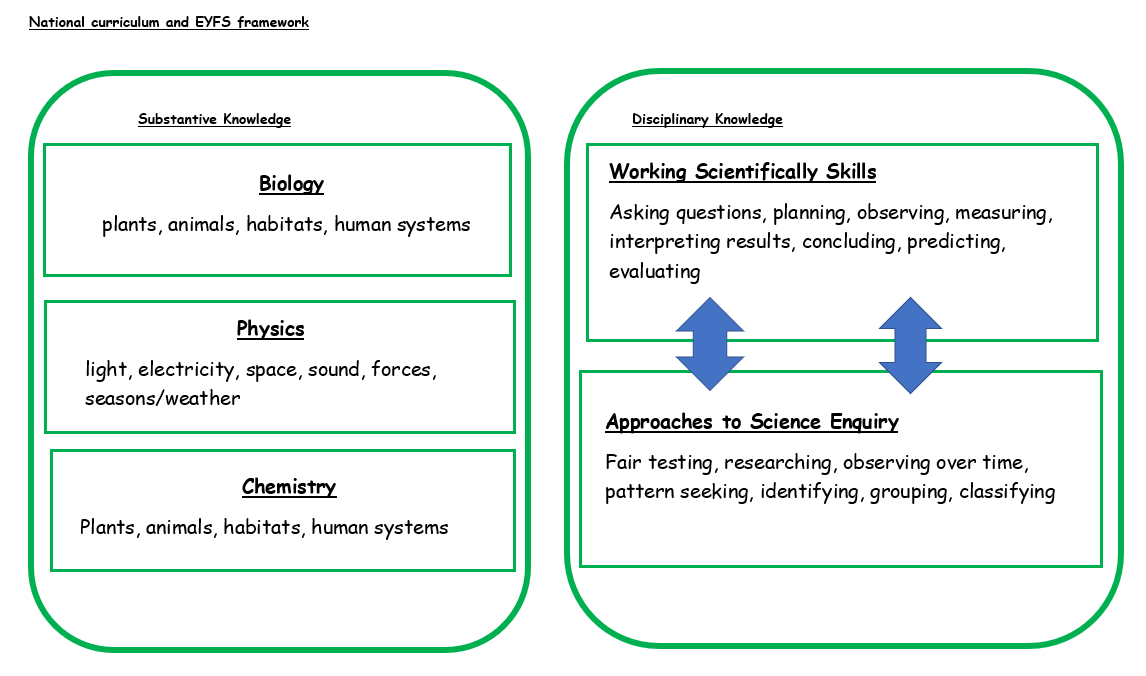
There are four key elements to the implementation of the science curriculum:
Plan: each lesson is judiciously planned to identify the different types of knowledge that the lesson focusses on. It builds on pupils’ prior learning, drawing upon previously lessons and the prior learning as identified in the medium-term plans.
Teach: Teachers will use the medium-term plans to plan weekly plans to ensure all ability groups are catered for including those with SEND (adaptive teaching and use of Talking Tubs.
Assess: pupils are given questions/tasks to enable pupils to demonstrate their understanding of the component knowledge.
Intervene and re-teach: composite tasks identify knowledge components that are not secure. These are re-taught before moving on to avoid future gaps from emerging. Use of starters, Must-Knows recapping at the start and throughout lessons are used to ensure the knowledge sticks and becomes long term in their memory.
Adapting the curriculum for pupils with SEND in science
At Beech Hill we ensure we adopt an inclusive curriculum so that ALL pupils learn in science. Each unit of work has a ‘Talking Tub’ which contains vocabulary cards, real life objects which also support sensory learning, practical resources, non-fiction books etc. Teachers identify and break down the components of the subject curriculum into manageable chunks for pupils who find learning more difficult, particularly those with cognition and learning needs. Furthermore, we use B-Squared as a resource for children working well below age-related standard which will be outlined on the teacher’s weekly plans. These may be smaller ‘steps’ than those taken by other pupils to avoid overloading the working memory. Children with SEND are taught first hand by the class teacher and not outside of the classroom to ensure high quality teaching. Small groups are used to embed learning and to help retain the key information taught in lessons. A variety of additional scaffolds may be used in lessons, such vocabulary banks, additional visual stimuli or adult support.
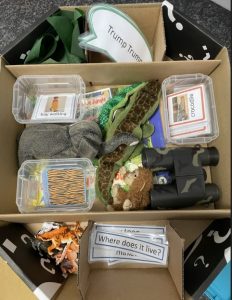
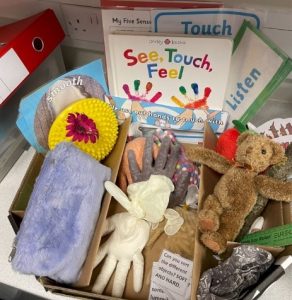
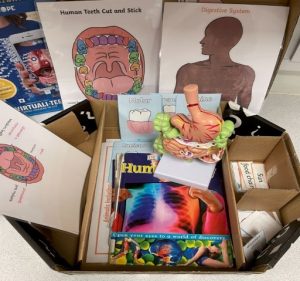
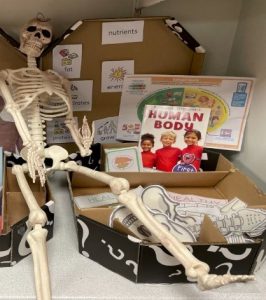
Science Curriculum Implementation (How does a science lesson look like)
Science lessons will start by recapping on previous learning that is only essential for the current lesson. Children will use their Must Knows in their books to help them recap key knowledge and vocabulary. Their Must Knows are a working document that children will highlight what they know and annotate/make notes on the areas that they are unsure about. The teacher will then introduce the learning objective of the lesson, making links to both the wider learning journey and the real world of science. The teacher will model and develop key concepts to cement knowledge, skills and understanding ensuring that teacher modelling is built around appropriate success criteria. Pupils will use concrete and pictorial models and analogies to help pupils develop a deeper understanding of abstract scientific concepts. Teachers to maximise engagement, learning and progress. As the lesson progresses teachers will build in regular checks for understanding, including through assertive monitoring and targeted questioning, addressing misconceptions quickly and remodelling where necessary. In lessons, we make sure there is a focus on target scientific language to enable pupils to articulate science concepts with accuracy in both the spoken and written word. When maths is involved (see progression map with statistics highlighted to ensure graphs are taught discretely in maths lessons to prevent working memory).
At the end of a lesson, teachers will check priority knowledge has been retained to the working memory at the end of every lesson, including through the use of a plenary.
Science Must Knows
Below are a selection of the Must Knows that we provide for each year group, for each specific unit of science (half termly). These Must Knows are designed to be used at home by parents and revision, in school to supplement work in lessons and to recap previous learning. These are carefully structured so that knowledge and vocabulary are sequenced and built upon over time. We are confident that these Must Knows will help our children to develop and retain key knowledge on a wide range of topics and will significantly improve their vocabulary.
Sample Must Knows
Cultural Capital in Science
‘It is the essential knowledge that pupils need to be educated citizens, introducing them to the best that has been thought and said and helping to engender an appreciation of human creativity and achievement.’
Ofsted School Inspection Handbook 2019
Cultural Capital at Beech Hill is something we are passionate about throughout all subjects. Science is a subject that lends itself extremely well to developing cultural capital. We are excited about delivering knowledge and making educated citizens who learn from the events, people, ideas we study.
We aim for year groups to have at least one high quality geographical trip or visitor per year in order for pupils to gain a wider context to their unit of study. Children are then able to apply their knowledge to a more ‘concrete’ experience and bring their learning to life.
Some examples of this during the last few years are:
Year 1 – Trip to Manor Heath Park to observe autumnal and seasonal changes.
Year 2 – Residential to Nell Bank with pond dipping, mini beast hunt and habitat trail (similar experiences recreated for those children at school). Living Eggs experience to see life cycle of chicks first hand.
Year 3 – Fossil experience
Year 4 – Cromwell Bottom Nature Reserve (Living things and their habitats)
Year 5 – Local reservoir and canal walk (links with the water cycle)
Year 6 – virtual reality t-shirts to explore inside the human body.
Showcase Science
Showcase your Science (Beech Hill Science in action):
All children in Years 1 – 6 have a Science book where their work is recorded. Work is also evidenced on our online learning platform (Seesaw) for use in EYFS too.
Here are some highlights so far.
Within their study of Evolution, Year 6 looked at the Scientist Charles Darwin and completed a piece of writing about him (fact file or biography)
Sci Pictures
Science-Newsletter-STEM
